When it comes to optimizing your workout routine, you’re likely no stranger to the importance of nutrient-rich foods to enhance muscle recovery.
But did you know that it can take up to 48 hours for your muscles to fully recover after a intense workout? This prolonged recovery time can be a major setback for athletes and fitness enthusiasts who need to perform at their best on a regular basis.
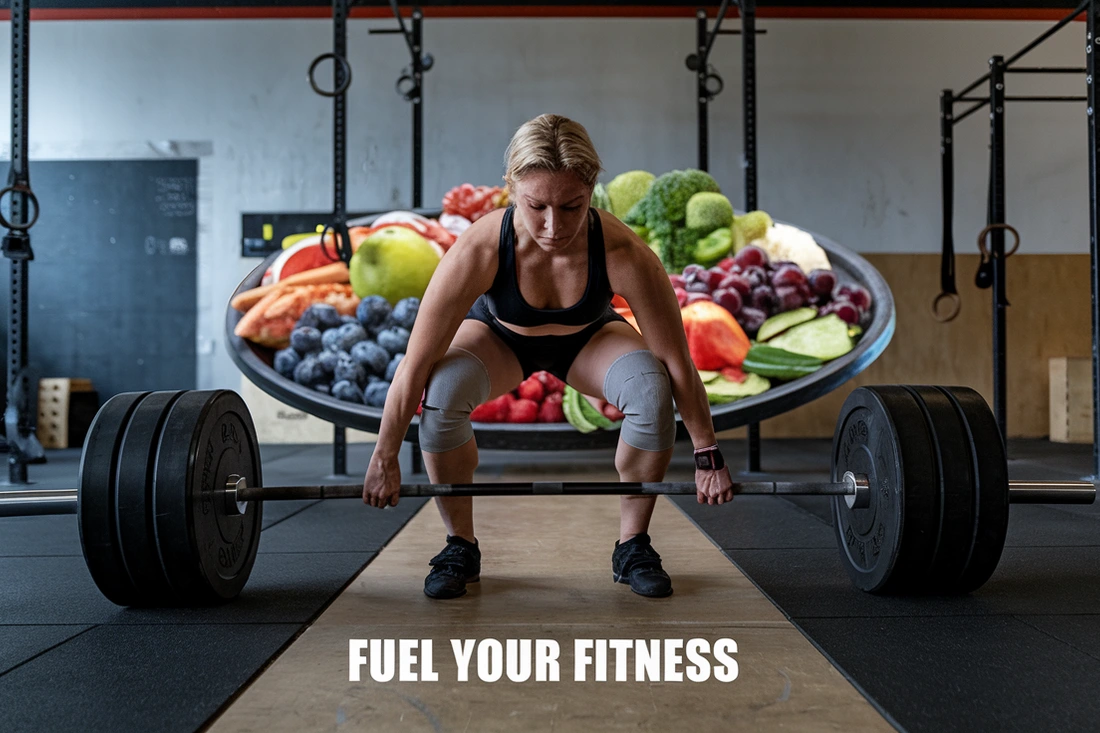
Slow muscle recovery can lead to decreased performance, increased risk of injury, and a longer time to achieve your fitness goals.
The good news is that incorporating the right foods into your diet can significantly speed up the recovery process, allowing you to get back to your workout routine faster and with more energy.
In this article, we’ll explore the top 7 nutrient-rich foods that can help enhance muscle recovery, so you can optimize your diet and take your fitness to the next level.
The Science of Muscle Recovery
Muscle recovery is a complex process that involves multiple physiological systems working together to repair and rebuild muscle tissue after intense exercise.
When you engage in physical activity, you cause micro-tears in your muscle fibers, which leads to inflammation and damage.
This damage triggers a repair process that involves the activation of various cellular pathways, the release of hormones and growth factors, and the uptake of nutrients.
The Muscle Recovery Process
The muscle recovery process can be broken down into three distinct phases:
- Acute Phase: This phase occurs immediately after exercise and lasts for several hours. During this phase, your body’s primary focus is on repairing the damage caused by exercise and reducing inflammation.
- Sub-Acute Phase: This phase lasts for several days after exercise and is characterized by the activation of various cellular pathways that promote muscle repair and growth.
- Chronic Phase: This phase occurs after the sub-acute phase and can last for several weeks or even months. During this phase, your body continues to adapt to the demands placed on it by exercise, leading to long-term changes in muscle size, strength, and function.
The Importance of Nutrition in Recovery
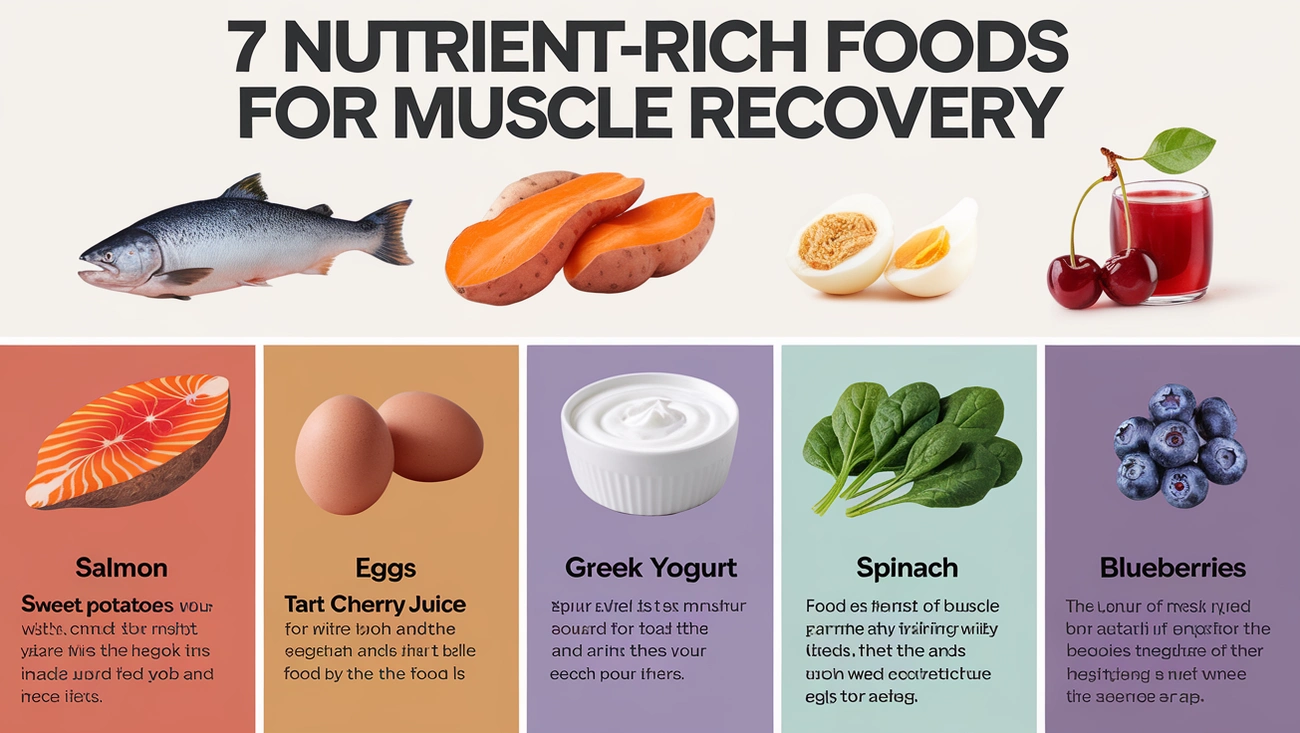
Nutrition plays a critical role in the muscle recovery process.
When you consume the right foods, you provide your body with the necessary building blocks to repair and rebuild muscle tissue.
Adequate nutrition can help to:
- Reduce muscle soreness and inflammation
- Promote muscle protein synthesis
- Support the growth and repair of muscle tissue
- Enhance athletic performance
Key Nutrients for Muscle Repair and Growth
While all nutrients are important for overall health, some are more critical than others when it comes to muscle recovery.
Here are some of the key nutrients to focus on:
- Protein: Protein is essential for muscle repair and growth. It provides the necessary building blocks for muscle protein synthesis, which is the process by which your body builds new muscle tissue.
- Carbohydrates: Carbohydrates are important for replenishing energy stores and supporting muscle function. They also help to promote muscle protein synthesis.
- Healthy Fats: Healthy fats, such as omega-3 fatty acids, are important for reducing inflammation and promoting muscle recovery.
- Antioxidants: Antioxidants, such as vitamins C and E, help to reduce muscle damage and inflammation by neutralizing free radicals.
- Electrolytes: Electrolytes, such as sodium and potassium, help to regulate fluid balance and support muscle function.
By understanding the muscle recovery process and the importance of nutrition, you can take the first step towards optimizing your diet and supporting your fitness goals.
7 Nutrient-Rich Foods for Muscle Recovery
Incorporating the right nutrients into your diet is crucial for optimal muscle recovery.
Below are seven nutrient-rich foods that can enhance your muscle recovery process, helping you get back to your workouts faster and stronger.
Salmon (rich in protein and omega-3 fatty acids)

Salmon is a powerhouse of nutrition when it comes to muscle recovery. It is rich in high-quality protein, which is essential for muscle repair and growth.
Additionally, salmon is packed with omega-3 fatty acids, which have potent anti-inflammatory properties.
These healthy fats help reduce muscle soreness and inflammation, speeding up the recovery process.
Sweet Potatoes (complex carbohydrates and antioxidants)
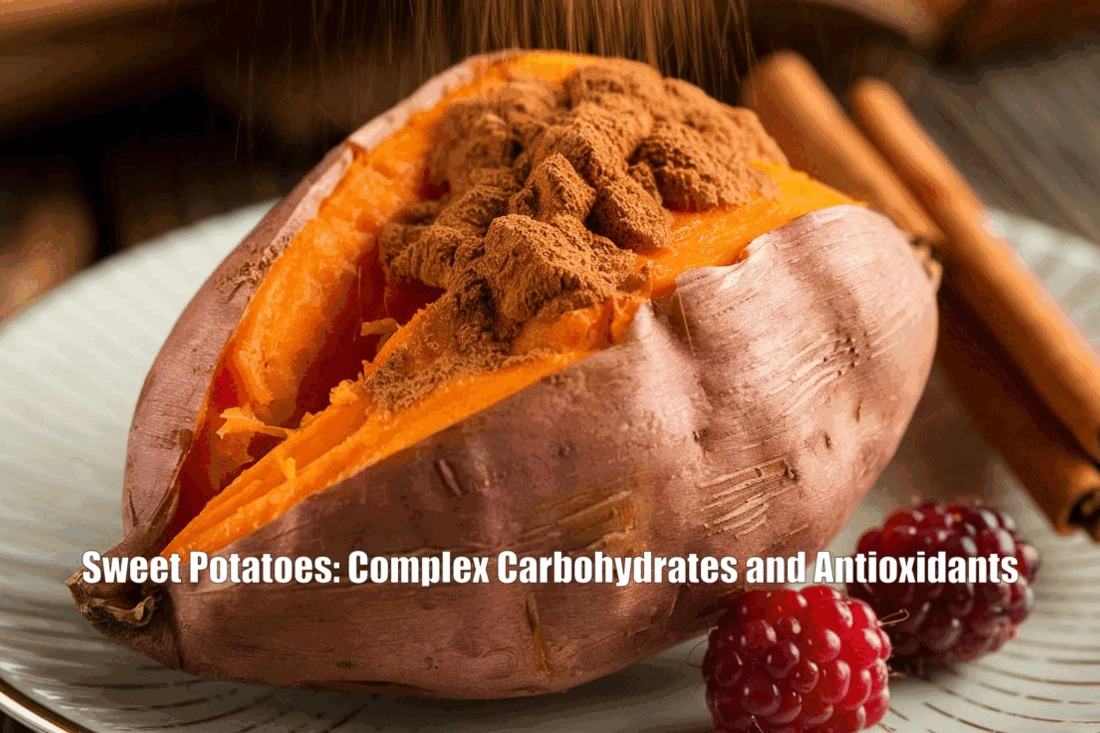
Sweet potatoes are an excellent source of complex carbohydrates, which are essential for replenishing glycogen stores in your muscles after a workout.
They also contain a variety of antioxidants, including vitamins A and C, which help combat oxidative stress and reduce muscle damage.
Sweet potatoes are versatile and can be easily incorporated into your post-workout meals.
Eggs (complete protein source)
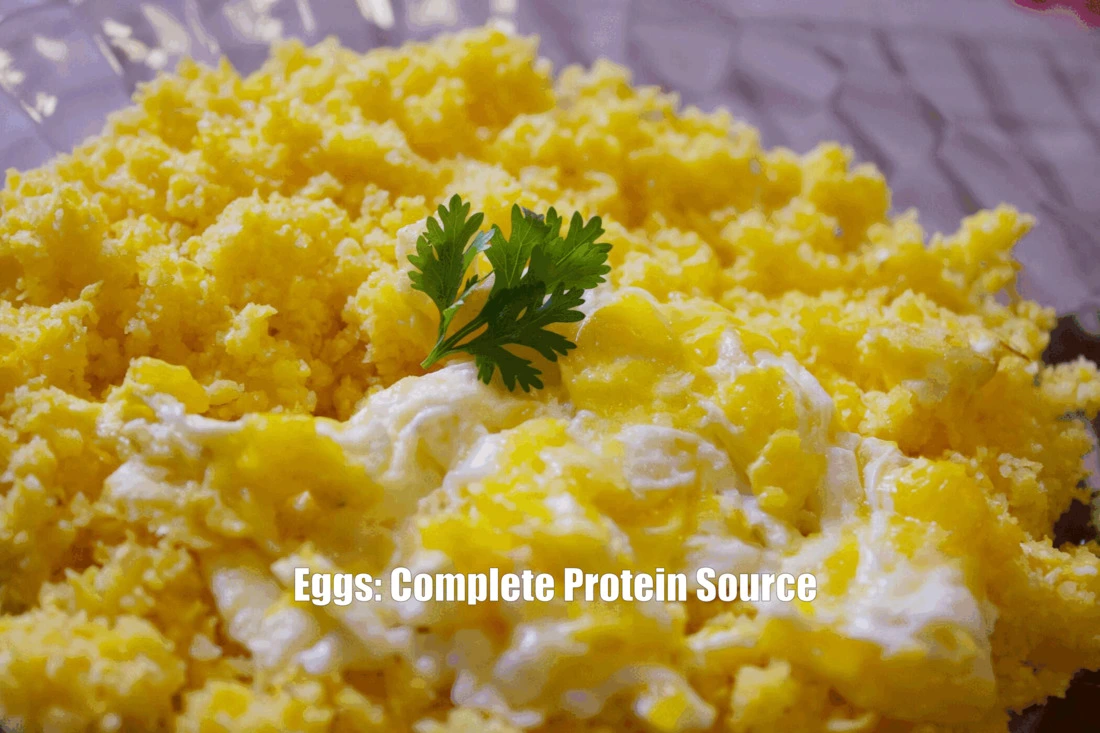
Eggs are a complete protein source, meaning they contain all the essential amino acids your body needs for muscle repair and growth.
They are also rich in vitamins and minerals that support overall health.
Eggs are easy to prepare and can be included in various meals throughout the day to ensure you get adequate protein intake.
Tart Cherry Juice (anti-inflammatory properties)
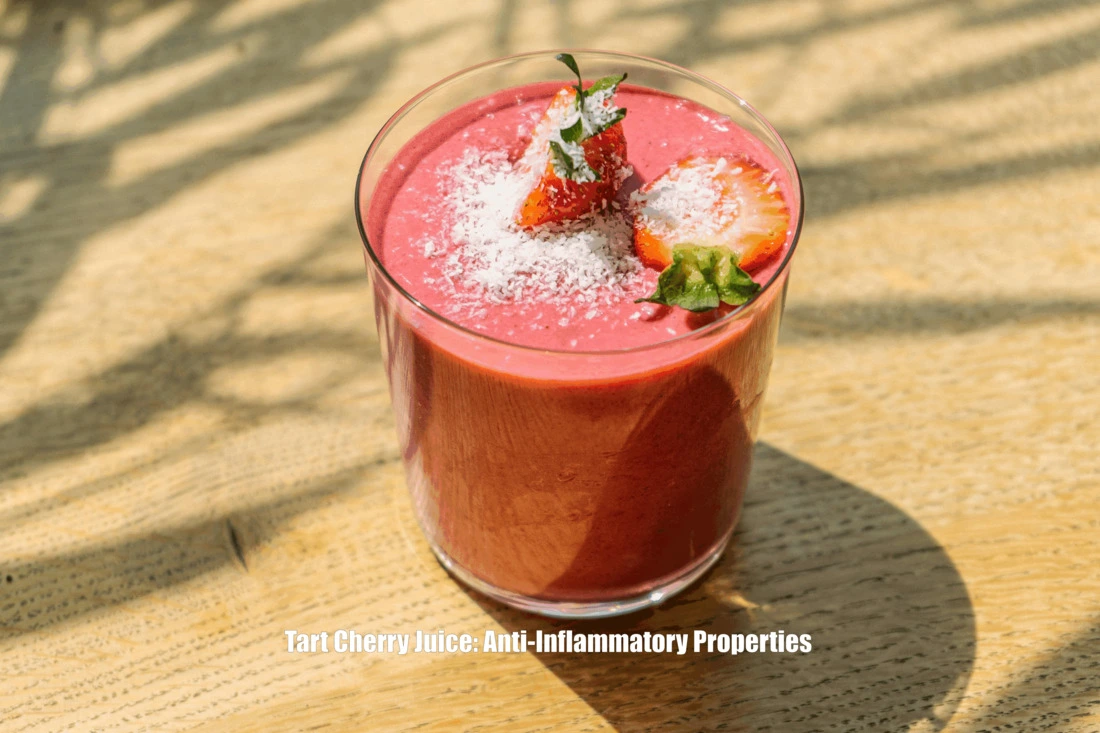
Tart cherries are known for their powerful anti-inflammatory properties, primarily due to their high anthocyanin content.
Drinking tart cherry juice has been shown to reduce muscle soreness and inflammation, making it an excellent addition to your post-workout recovery routine.
It’s also a great source of antioxidants, which help neutralize free radicals and protect your muscles.
Greek Yogurt (protein and probiotics)
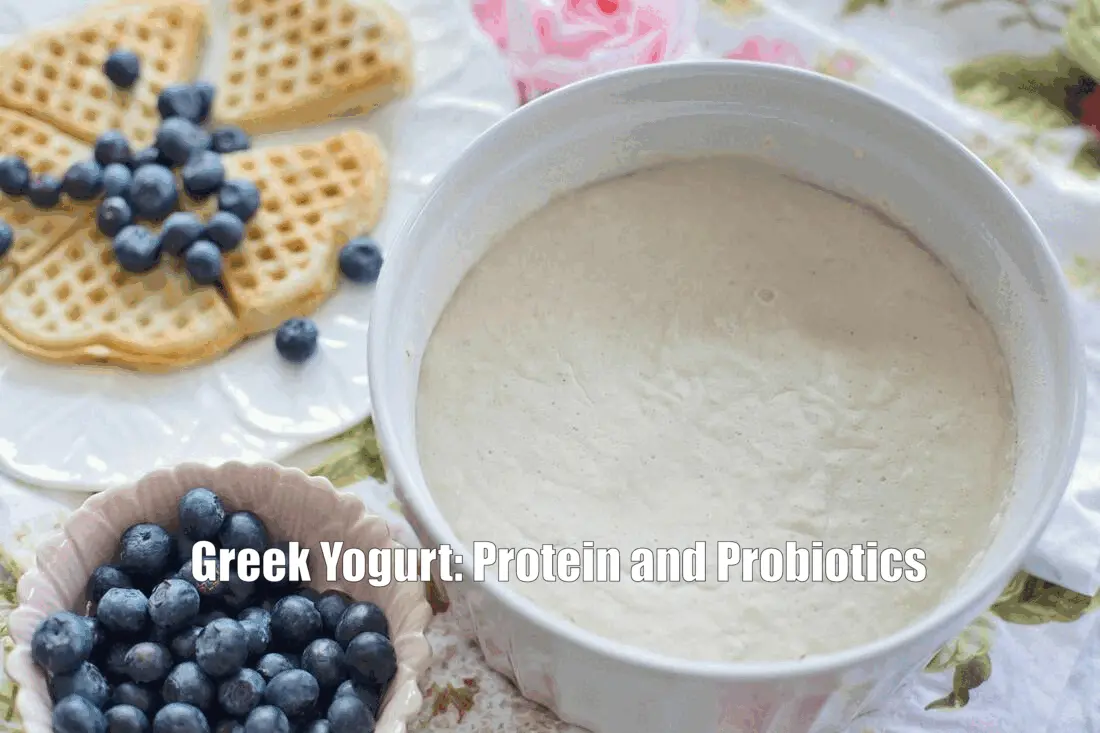
Greek yogurt is a great source of protein, which is essential for muscle repair and growth. It also contains probiotics, which support a healthy gut microbiome.
A healthy gut is crucial for overall well-being and can indirectly contribute to better nutrient absorption and muscle recovery.
Greek yogurt can be enjoyed on its own or added to smoothies and other dishes.
Spinach (nitrates and antioxidants)
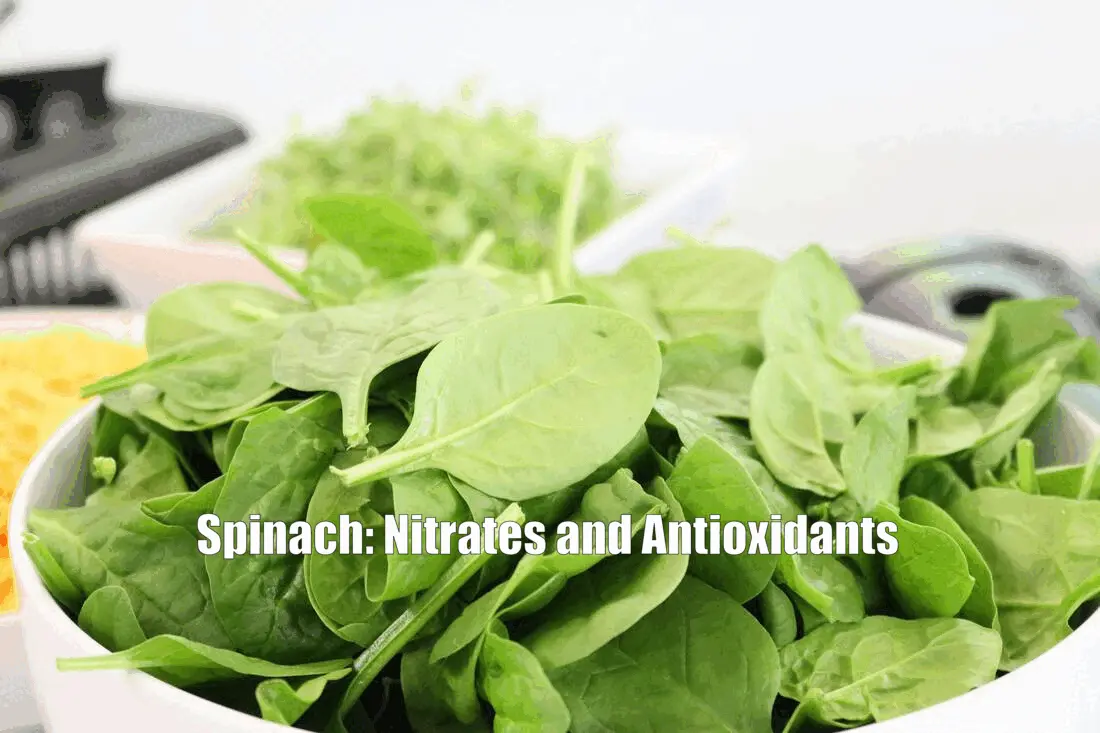
Spinach is packed with nitrates, which have been shown to improve muscle function and endurance.
It is also rich in antioxidants, including vitamins C and E, which help reduce muscle damage caused by free radicals.
Spinach can be easily incorporated into salads, smoothies, or cooked dishes to boost your post-workout nutrition.
Blueberries (antioxidants and vitamins)
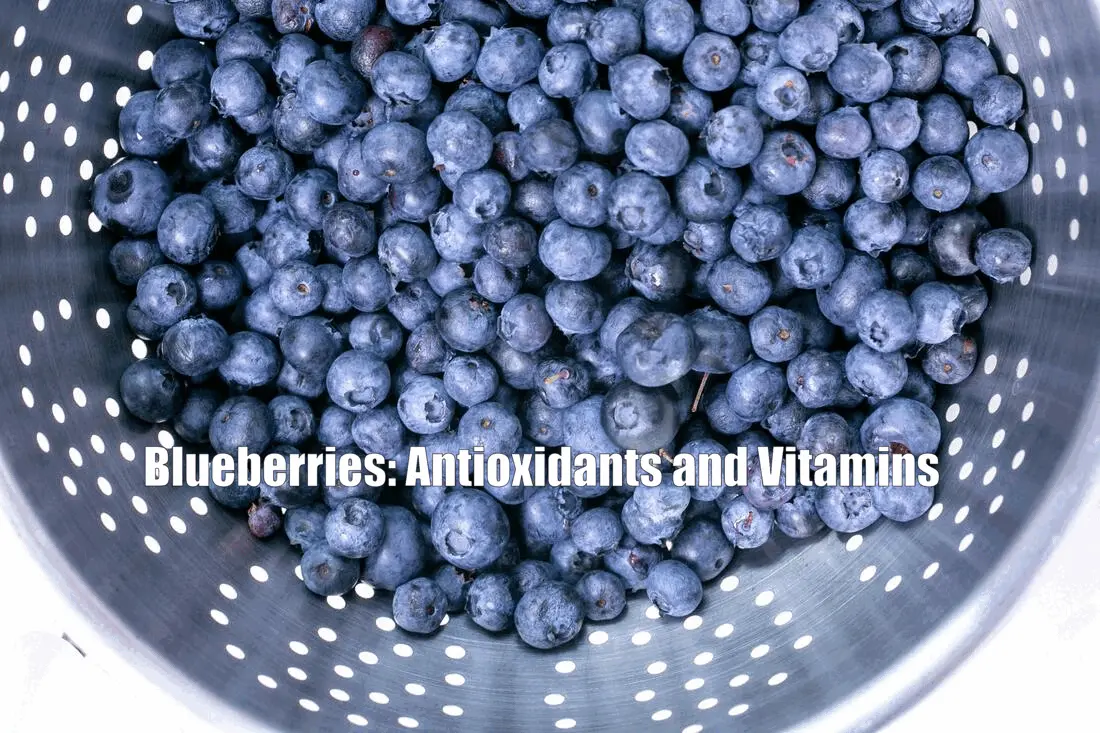
Blueberries are loaded with antioxidants, which help combat oxidative stress and reduce muscle damage.
They are also a good source of vitamins C and K, which contribute to overall health and recovery.
Blueberries can be enjoyed as a snack or added to smoothies, yogurt, or oatmeal for a nutritious boost.
By incorporating these seven nutrient-rich foods into your diet, you can significantly enhance your muscle recovery process.
Not only do these foods provide the essential nutrients your body needs, but they also offer a variety of health benefits that contribute to overall well-being and performance.
In the next section, we’ll discuss how to incorporate these foods into your diet effectively.
How to Incorporate These Foods into Your Diet
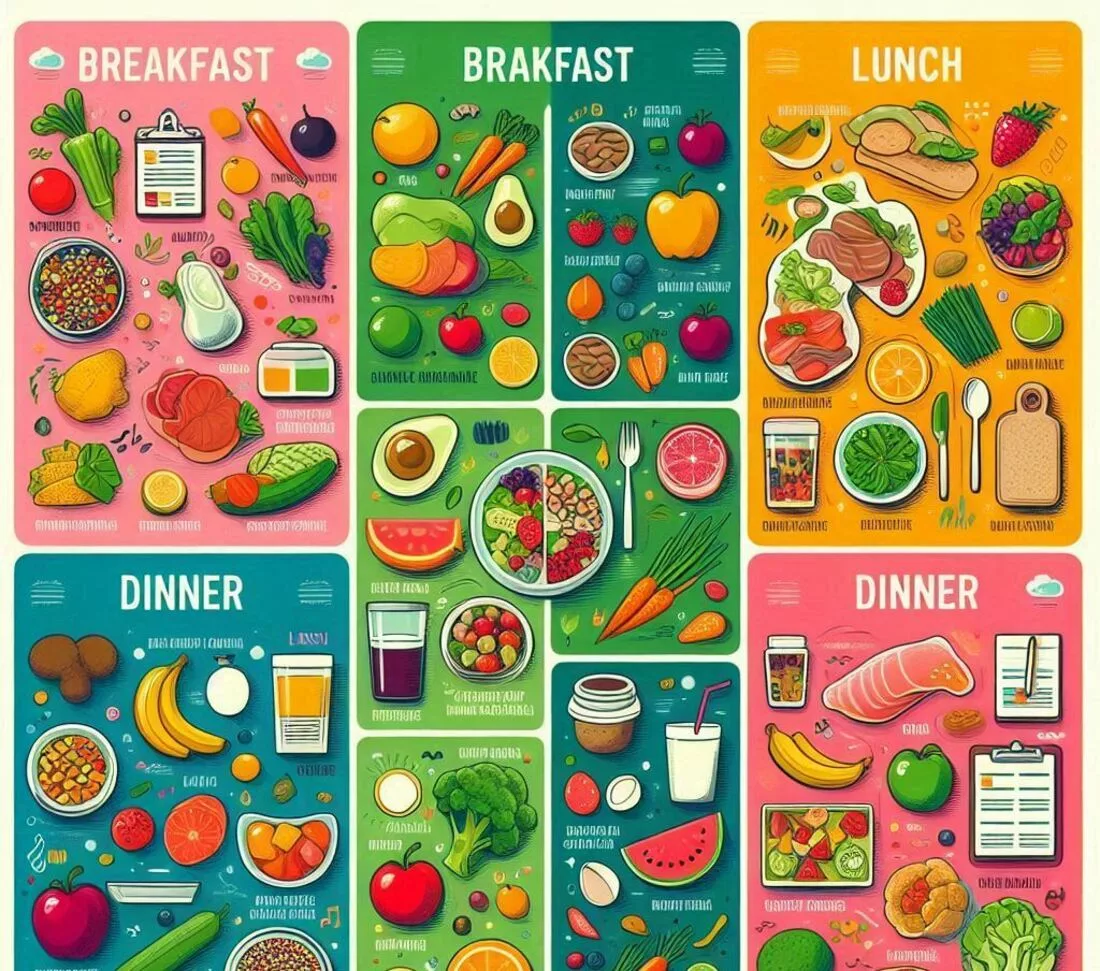
Now that we’ve discussed the 7 nutrient-rich foods for muscle recovery, let’s talk about how to incorporate them into your diet.
Here are some pre-workout meal ideas, post-workout snacks and meals, and a sample meal plan to help you get started.
Pre-Workout Meal Ideas
A well-balanced pre-workout meal can help provide energy and support muscle function during exercise.
Here are some meal ideas that incorporate the 7 nutrient-rich foods:
- Oatmeal with banana, almond butter, and a splash of low-fat milk (complex carbohydrates, protein, and healthy fats)
- Greek yogurt with berries, honey, and a sprinkle of spinach (protein, complex carbohydrates, and antioxidants)
- Whole-grain toast with avocado, eggs, and a slice of tomato (complex carbohydrates, protein, and healthy fats)
Post-Workout Snacks and Meals
After a workout, it’s essential to refuel with a balanced snack or meal that includes protein, complex carbohydrates, and healthy fats. Here are some ideas:
- Smoothie bowl with Greek yogurt, frozen berries, spinach, and almond milk topped with granola and nuts (protein, complex carbohydrates, and antioxidants)
- Grilled chicken breast with roasted sweet potatoes and steamed broccoli (protein, complex carbohydrates, and antioxidants)
- Turkey and avocado wrap with mixed greens and whole-grain tortilla (protein, complex carbohydrates, and healthy fats)
Sample Meal Plan for Optimal Muscle Recovery
Here’s a sample meal plan that incorporates the 7 nutrient-rich foods for muscle recovery:
Monday
- Breakfast: Oatmeal with banana, almond butter, and a splash of low-fat milk
- Lunch: Grilled chicken breast with roasted sweet potatoes and steamed broccoli
- Snack: Apple slices with almond butter
- Dinner: Baked salmon with quinoa and steamed asparagus
Tuesday
- Breakfast: Greek yogurt with berries, honey, and a sprinkle of spinach
- Lunch: Turkey and avocado wrap with mixed greens and whole-grain tortilla
- Snack: Carrot sticks with hummus
- Dinner: Grilled chicken breast with roasted Brussels sprouts and sweet potatoes
Wednesday
- Breakfast: Smoothie bowl with Greek yogurt, frozen berries, spinach, and almond milk topped with granola and nuts
- Lunch: Grilled chicken breast with mixed greens and whole-grain pita
- Snack: Hard-boiled egg and cherry tomatoes
- Dinner: Baked chicken thighs with roasted carrots and quinoa
Thursday
- Breakfast: Avocado toast with scrambled eggs and whole-grain bread
- Lunch: Grilled chicken breast with mixed greens and whole-grain wrap
- Snack: Rice cakes with almond butter and banana slices
- Dinner: Slow-cooked lentil soup with whole-grain bread
Friday
- Breakfast: Omelette with vegetables and whole-grain toast
- Lunch: Grilled chicken breast with roasted asparagus and quinoa
- Snack: Apple slices with peanut butter
- Dinner: Baked salmon with roasted Brussels sprouts and sweet potatoes
Saturday
- Breakfast: Greek yogurt with berries, honey, and a sprinkle of spinach
- Lunch: Turkey and avocado wrap with mixed greens and whole-grain tortilla
- Snack: Carrot sticks with hummus
- Dinner: Grilled chicken breast with roasted carrots and quinoa
Sunday
- Breakfast: Smoothie bowl with Greek yogurt, frozen berries, spinach, and almond milk topped with granola and nuts
- Lunch: Grilled chicken breast with mixed greens and whole-grain pita
- Snack: Hard-boiled egg and cherry tomatoes
- Dinner: Baked chicken thighs with roasted carrots and quinoa
Remember to stay hydrated by drinking plenty of water throughout the day.
Also, feel free to swap out ingredients and interchange different protein sources, vegetables, and whole grains to keep your diet interesting and tailored to your preferences.
By incorporating these nutrient-rich foods into your diet, you’ll be well on your way to supporting optimal muscle recovery and achieving your fitness goals.
Additional Factors Affecting Muscle Recovery
While nutrition plays a critical role in muscle recovery, there are several other factors that can impact the recovery process.
Here are some additional factors to consider:
Hydration
Hydration is essential for muscle recovery.
When you’re dehydrated, your muscles can’t function properly, and your body can’t repair and rebuild muscle tissue effectively.
Aim to drink at least 8-10 glasses of water per day, and make sure to drink water or a sports drink during and after exercise to replenish lost fluids.
Sleep
Sleep is another critical factor in muscle recovery.
When you’re sleeping, your body is repairing and rebuilding muscle tissue, and producing hormones that help with muscle growth and recovery.
Aim for 7-9 hours of sleep per night, and prioritize sleep as part of your recovery routine.
Active Recovery Techniques
Active recovery techniques, such as foam rolling, self-myofascial release, and light cardio, can help promote blood flow and reduce muscle soreness.
These techniques can also help improve range of motion and reduce muscle tension.
Other Factors to Consider
In addition to hydration, sleep, and active recovery techniques, there are several other factors that can impact muscle recovery. These include:
- Stress: High levels of stress can negatively impact muscle recovery. Try to manage stress through techniques like meditation, deep breathing, or yoga.
- Massage: Massage can help promote blood flow and reduce muscle soreness. Consider getting a massage after a hard workout or competition.
- Compression garments: Compression garments, such as tights or sleeves, can help improve blood flow and reduce muscle soreness.
- Elevation: Elevating your legs or arms after a hard workout can help reduce muscle soreness and promote blood flow.
Tips for Optimizing Muscle Recovery
Here are some tips for optimizing muscle recovery:
- Listen to your body: Pay attention to your body and take rest days as needed.
- Prioritize sleep: Make sleep a priority and aim for 7-9 hours per night.
- Stay hydrated: Drink plenty of water throughout the day, and make sure to drink water or a sports drink during and after exercise.
- Use active recovery techniques: Try foam rolling, self-myofascial release, or light cardio to promote blood flow and reduce muscle soreness.
- Manage stress: Try to manage stress through techniques like meditation, deep breathing, or yoga.
By considering these additional factors and incorporating them into your recovery routine, you can optimize your muscle recovery and achieve your fitness goals.
FAQ Section
Q: How long does it take for muscles to recover after a workout?
A: The time it takes for muscles to recover after a workout can vary depending on the intensity and duration of the exercise, as well as individual factors such as fitness level and nutrition. Generally, muscles can take anywhere from 24 to 48 hours to recover after a workout, but some research suggests that it can take up to 72 hours for muscles to fully recover.
Q: Are there any supplements that can speed up muscle recovery?
A: While there are some supplements that may help support muscle recovery, such as protein powder and creatine, there is no magic bullet that can completely speed up the recovery process. Adequate nutrition, hydration, and rest are still the most important factors in supporting muscle recovery.
Q: What’s the best ratio of carbs to protein for muscle recovery?
A: The ideal ratio of carbs to protein for muscle recovery is a topic of ongoing debate. Some research suggests that a ratio of 2:1 or 3:1 (carbs:protein) is optimal, while others recommend a more balanced approach. In general, it’s recommended to consume a mix of carbohydrates and protein within 30-60 minutes after exercise to support muscle recovery.
Q: How does sleep affect muscle recovery?
A: Sleep plays a critical role in muscle recovery. During sleep, your body repairs and rebuilds muscle tissue, and produces hormones that help with muscle growth and recovery. Aim for 7-9 hours of sleep per night to support muscle recovery.
Q: Can I train the same muscle group every day?
A: No, it’s not recommended to train the same muscle group every day. Muscle recovery requires time, and training the same muscle group daily can lead to overtraining and injury. It’s generally recommended to allow at least 48 hours of rest between strength training sessions for the same muscle group.
Expert Insights
To gain a deeper understanding of the importance of nutrition for recovery, we spoke with a sports nutritionist and an athlete who have expertise in this area.
A. Quote from a sports nutritionist
“Nutrition is the foundation of recovery. When you’re fueling your body with the right foods, you’re giving it the tools it needs to repair and rebuild muscle tissue, replenish energy stores, and adapt to the demands of exercise. Without proper nutrition, you’re essentially handicapping your recovery process and limiting your ability to perform at your best.” – Rachel Clarkson, Sports Nutritionist
B. Athlete testimonial on nutrition for recovery
“I used to think that nutrition was just about fueling my body for performance, but I’ve come to realize that it’s just as important for recovery. Since I started paying attention to my nutrition and making sure I’m getting the right foods, I’ve noticed a huge difference in my recovery time and overall performance. I’m able to train harder and more frequently, and I feel more confident in my ability to perform at my best.” – Emily Wilson, Professional Triathlete
Additional Insights
- “Proper nutrition is essential for recovery, but it’s also important to remember that everyone’s nutritional needs are different. What works for one person may not work for another, so it’s crucial to experiment and find what works best for you.” – Rachel Clarkson, Sports Nutritionist
- “I’ve found that nutrition is just as important as training when it comes to achieving my goals. By fueling my body with the right foods, I’m able to recover faster and perform at my best.” – Emily Wilson, Professional Triathlete
These expert insights highlight the importance of nutrition for recovery and provide valuable advice for athletes looking to optimize their nutrition and improve their performance.
Conclusion

In conclusion, muscle recovery is a critical aspect of any exercise or athletic program.
By incorporating the right foods into your diet, you can optimize your recovery and achieve your fitness goals.
Recap of the 7 nutrient-rich foods
In this article, we discussed the 7 nutrient-rich foods that can help support muscle recovery:
- Salmon
- Sweet potatoes
- Eggs
- Tart cherry juice
- Greek yogurt
- Spinach
- Blueberries
Table Comparing the Nutritional Profiles of the 7 Foods
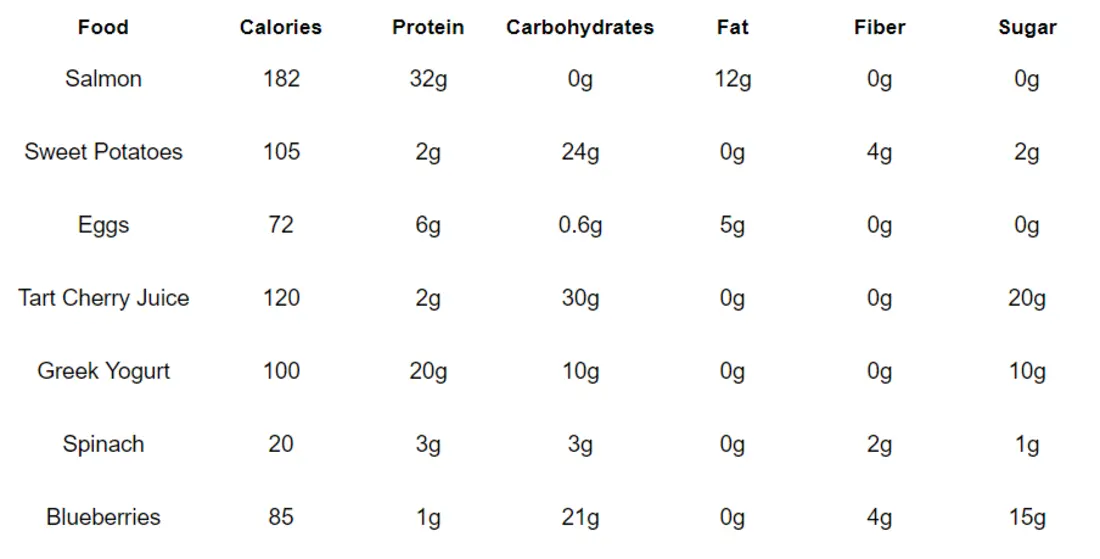
These foods provide a mix of protein, complex carbohydrates, and healthy fats that can help support muscle repair and recovery.
Importance of a holistic approach to muscle recovery
While nutrition is a critical aspect of muscle recovery, it’s also important to take a holistic approach to recovery.
This includes getting enough sleep, staying hydrated, and managing stress.
Encourage readers to implement these foods in their diet
We encourage you to start incorporating these 7 nutrient-rich foods into your diet today.
By making a few simple changes to your nutrition plan, you can optimize your recovery and achieve your fitness goals.
Here are some tips to get you started:
- Start by adding one or two of these foods to your diet each week.
- Experiment with different recipes and preparation methods to find what works best for you.
- Make sure to stay hydrated and get enough sleep to support your recovery.
- Consider working with a sports dietitian or nutritionist to develop a personalized nutrition plan.
By taking a holistic approach to muscle recovery and incorporating these 7 nutrient-rich foods into your diet, you can optimize your recovery and achieve your fitness goals.
Final Thoughts
Recovery is just as important as training when it comes to achieving your fitness goals.
By prioritizing nutrition and making a few simple changes to your diet, you can optimize your recovery and take your fitness to the next level.
We hope this article has provided you with the information and inspiration you need to start optimizing your recovery today. Happy training!
Downloadable PDF of the Sample Meal Plan
Links to Related Articles on Workout Nutrition
- Nutrition and Muscle Recovery. National Institutes of Health (NIH) (.gov)
- Food as Fuel Before, During and After Workouts. American Heart Association
- Timing Your Pre- and Post-Workout Nutrition. Academy of Nutrition and Dietetics
Recommended Books on Sports Nutrition
- Nancy Clark’s Sports Nutrition Guidebook by Nancy Clark
- The Academy of Nutrition and Dietetics’ Complete Food and Nutrition Guide by Roberta Larson Duyff
- Essential Sports Nutrition: A Guide to Optimal Performance for Every Active Person by Marni Sumbal
Useful Apps for Tracking Nutrition and Recovery
These resources provide a wealth of information and tools to help readers optimize their workout nutrition and recovery strategies.
Related Posts
No posts
